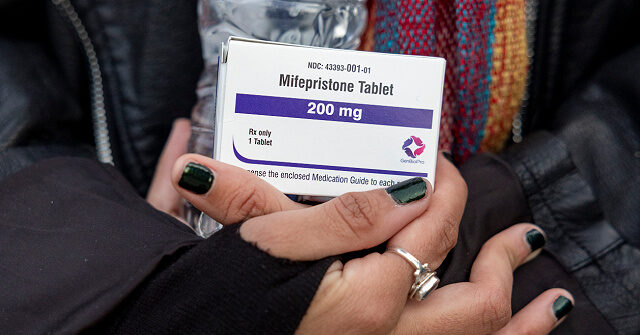Texas has initiated a lawsuit against a New York physician, Dr. Margaret Daley Carpenter, for allegedly unlawfully supplying abortion pills to a woman in the state, contributing to the death of the unborn child and serious health complications for the mother. Attorney General Ken Paxton claims that Carpenter violated Texas law by mailing abortion-inducing drugs without possessing a valid Texas medical license. This lawsuit marks a significant legal confrontation between pro-life states like Texas, which impose strict regulations on abortion, and pro-abortion states like New York, which have enacted laws to protect physicians who provide such services, potentially encouraging the use of telehealth in abortion care.
The lawsuit outlines that, in May 2024, a 20-year-old woman, after becoming pregnant but not disclosing it to the child’s father, decided to seek an abortion. Following her decision, she reportedly ordered abortion pills online facilitated by Carpenter. Days later, the woman experienced severe health issues, leading to a hospital visit where it was confirmed she had been nine weeks pregnant before suffering a miscarriage. The alarming situation escalated as the father of the unborn child discovered the abortion drugs at their residence, leading him to question the circumstances that led to the tragic outcome.
Attorney General Paxton expressed deep concern over the potential hazards posed by out-of-state doctors who engage in telemedicine practices that do not align with Texas laws, emphasizing the state’s commitment to protecting both maternal and fetal health. He has called for the court to impose civil penalties against Carpenter for each violation and has stressed the urgency of curtailing actions that contravene Texas statutes, asserting a need to safeguard Texas residents from possible harm stemming from non-compliant medical practices.
Dr. Carpenter’s involvement in this controversy is notably connected to her role as the founder of the Abortion Coalition for Telemedicine, an organization formed in reaction to the Supreme Court’s decision to overturn Roe v. Wade. The organization aims to assist doctors in becoming “shield providers,” equipping them with the necessary legal and logistical support to navigate the challenges posed by differing state laws on abortion provision. Notably, Carpenter also collaborates with AidAccess, a global provider of abortion pills, which has become a focal point of concern among pro-life advocates who argue that such practices jeopardize the health and safety of women, particularly in states with stringent abortion laws.
The lawsuit has garnered significant attention, with pro-life organizations welcoming the legal action as a potential catalyst for broader accountability regarding the practices of out-of-state abortion providers. Advocates argue that the proliferation of mail-order abortion services without requiring in-person consultations diminishes the value of life and poses serious risks to women’s health. Texas officials assert that such practices exploit regulatory gaps and do not prioritize the well-being of the mothers or their unborn children.
The legal battle also highlights the shifting landscape of abortion practices in the United States, where medication abortions constitute a growing majority of abortion procedures. As medication abortion involves the administration of drugs like mifepristone and misoprostol to terminate pregnancies, the implications of accessibility and regulatory measures become increasingly crucial. The case—Texas v. Carpenter—is set to play a critical role in shaping the discourse surrounding abortion laws, telehealth practices, and the responsibilities of healthcare providers operating across state lines, as it unfolds in the District Court of Collin County, Texas.

